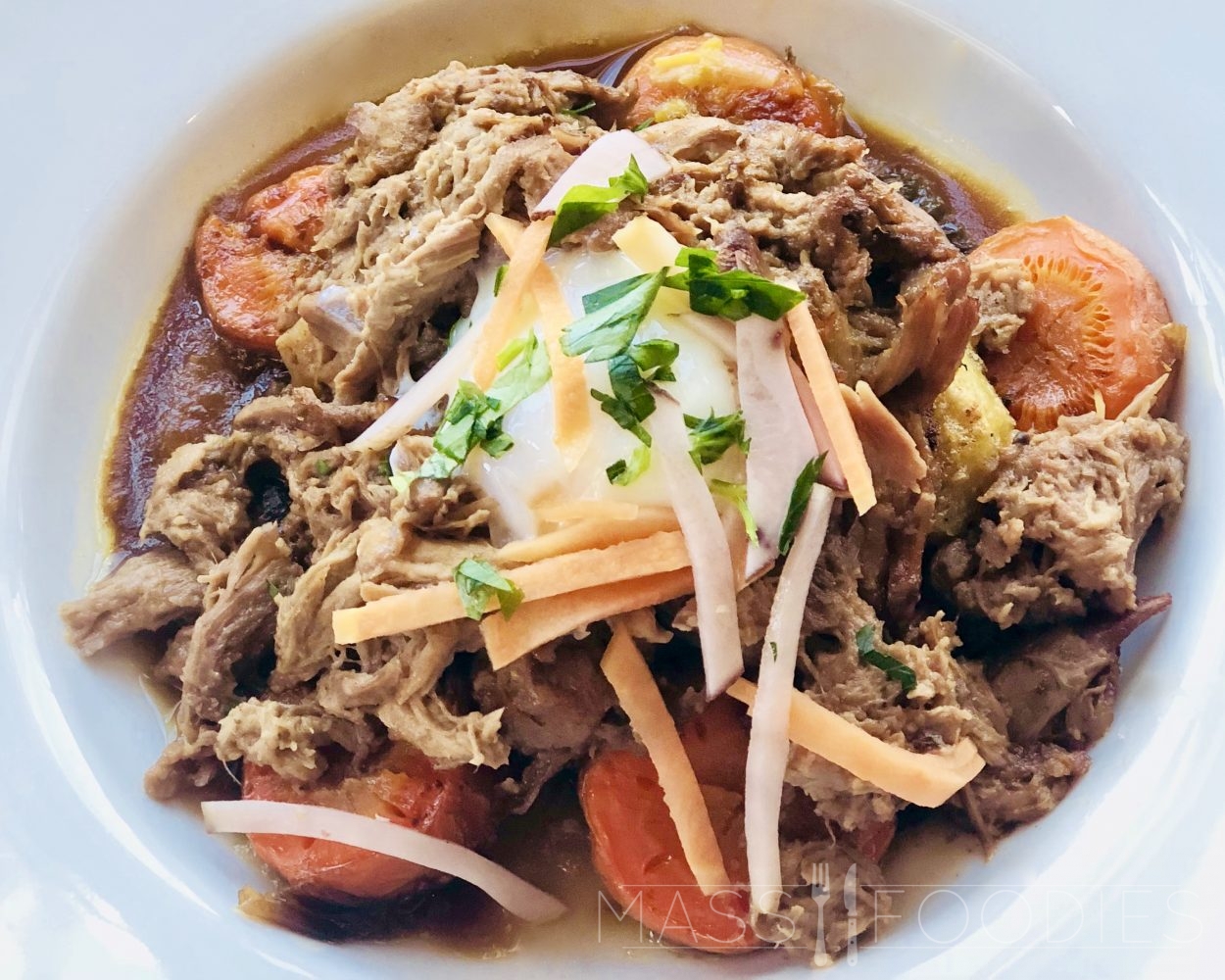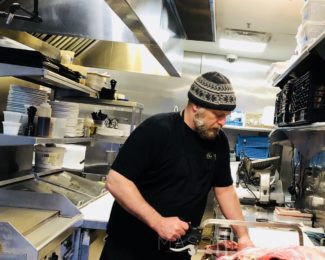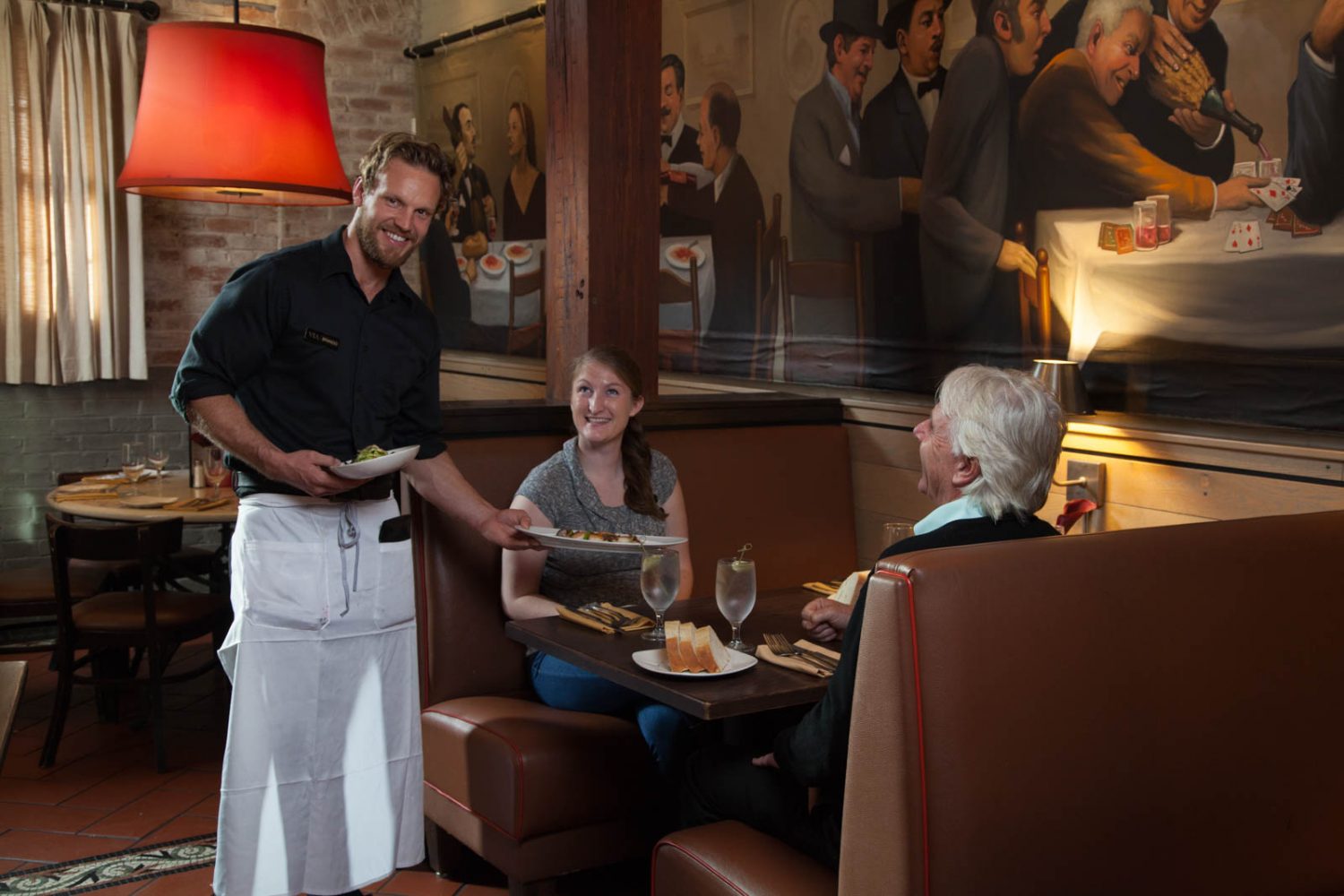
Brandon never set out to be the golden boy. Then again, who does? But, he’s won Server of the Week three times and according to General Manager Keith Carolan, “He could have won it 85 times.” When new employees ask Carolan how to improve, his advice is to follow the lead of a seasoned employee. Carolan goes on to say, “If you want to understand the culture, if you want to learn how to represent yourself and the company, if you want to know how to sell and to gain regulars – Brandon is a perfect example.” It’s true. He’s on time, courteous, professional, he looks the part, and he can sell you a bottle of 2014 Caymus Special Select in his sleep.
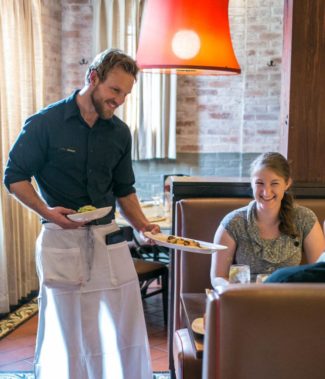
This week, Brandon made it to the finals of the “fantasy wine” playoffs, a competition in which the staff chooses from an abridged version of the wine list and subsequently plots their attack. Servers go head to head in a throwdown of sales and scholarship. “There are over 125 bottles of wine on the list and a lot of them are extremely hard to pronounce,” jokes Carolan, then adds more seriously, “It helps servers get acclimated with the winemaker and the fermentation process.” He finds that VIA Italian Table’s employees thrive when he fosters their competitive nature.
Friday’s pre-meal meeting takes place on the patio. The level of attention from the staff suggests that of a varsity lacrosse team preparing to hit the field. Carolan is the coach, dressed in a posh pink button down, which stands out from the monochromatic crowd. The front of house staff is dressed in uniform. A breeze ruffles their perfectly pressed black shirts and tugs at their tidy white aprons. It’s no secret that this is a business. Plenty of local eateries play at the idea that they are the result of an owner’s eccentric passion-project-turned-success. VIA, on the other hand, is an unabashedly corporate affair.
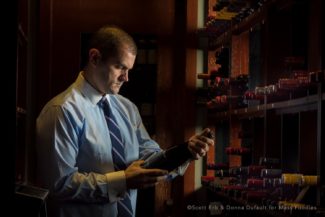
At eleven years old, Worcester Restaurant Group looks at VIA as the youngest sibling. “We’re starting to date ourselves a little bit, but any restaurant who has stood the test of time gets people’s attention,” Carolan says, praising the cuisine of Executive Chef Bill Brule. VIA is still sprightly enough to know that technology should facilitate hospitality and not stand in the way of a restaurant’s relationship with its guests. Like many of the nation’s top restaurant groups, they have adopted Reserve because it was created by people working within the industry. People who “get it.” Reserve has simplified operations at VIA in a variety of ways. For one thing, they’re finding that new customers are benefiting from partnerships with platforms like Instagram and google, which allow guests to book tables with one click. “It has been an invaluable transition and I can’t imagine life without it at this point,” Carolan says. With Reserve to manage logistics, he is left to what he does best – grooming his front of house staff.
We examine the 2017 Ferrari-Carano Fume Blanc. “Twirl it, smell it, taste it, let me know what you think,” Carolan says. He circulates the room, doling out wine and observing the analytical processes of his front of house staff. “Some people like New Zealand Sauvignon Blanc. This tastes nothing like New Zealand. This is clearly from Sonoma,” he tells us. “Nobody has any questions about the wine?” he asks, “I guarantee I’m going to ask someone a question now and they won’t know the answer.” One of the servers flips open her notebook.
“Okay, then. What is Fume Blanc?” Carolan asks.
Brandon knows the answer. Obviously.
“Fume blanc is a dry Sauvignon Blanc made in the United States that has undergone oak aging,” Brandon reports.
“Who created the term?” follows Carolan.
“A big winemaker…” Brandon pauses before eventually arriving at Robert Mondavi.
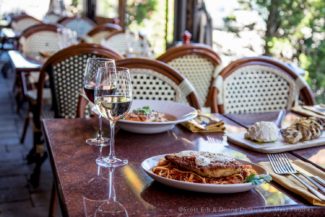
Carolan launches into the origin story of Mondavi’s 1960’s marketing campaign, soaring on a high of viticulture. “We talked about merlot and the movie ‘Sideways,’” he reminds his staff, “Merlot sales dropped off a cliff after consumers heard one snobby wine guy say, ‘I’m not drinking any [expletive] Merlot.’ The same thing happened with Sauvignon Blanc. It wasn’t selling well. The perception of it wasn’t great. Robert Mondavi coined Fume Blanc. Other wineries started adopting the name. He never put a trademark on it – not that he needs the money.” He informs the room that the Ferrari-Carano will run $10 a glass and $40 for the bottle. I can see the sales pitches swimming in their eyes. He swirls, smells, and tastes before saying, “It’s rounder than the other Sauvignon Blanc we have by the glass. I think it’s the right time for this wine, but I’m interested to see what our customers will think of it.”
Carolan cruises through matters of business with poise and concision. A clarification that the lobster cocktail will include a blend of tail, claw, and knuckle meat. “Where are the lobsters from?” he asks to a choral response of: “North Atlantic.”
A reminder that if there is a birthday, the server is to deliver a birthday card with the check. The cards are stored on the salad station. “It’s a small detail that goes over really, very well,” he says.
An announcement that one lucky new employee will be waiting on the managers this evening. “Don’t worry, it will just be the most awkward thing you’ve ever done,” he assures her, followed by peals of laughter from the crowd. Later he explains that the final training shift is a role play. “Everybody makes mistakes but that’s where we hope they end,” he says. Servers must prove themselves through nine training shifts in order to show that they are ready to work on the floor as a part of the team.
And then there’s the topic of Father’s Day on June 17th. “On Mother’s Day there could be rain, hail, sleet, or snow and they will come regardless. On Father’s Day, if it’s sunny, there’s some chance they may be grilling instead. And quite honestly if it is beautiful, we do tend to see a dip in business on that day,” he tells the staff.
At 4 p.m., a sweet little spark plug abandons her crayons and appears at the edge of the room to get Carolan’s attention. She comes up as high as his knee. “You want to pull perfect checks?” he asks the little girl. She nods and dumps a mountain of crumpled slips out onto the patio from a glass fishbowl.
I look quizzically at Brandon and he explains that a “perfect check” includes drink, appetizer, entree, and dessert, thereby qualifying an employee to win incentives from Worcester Restaurant Group. Yet again, Brandon thinks he has all the answers. And perhaps he does. When it comes to reliable service, no one hits the mark like VIA.

